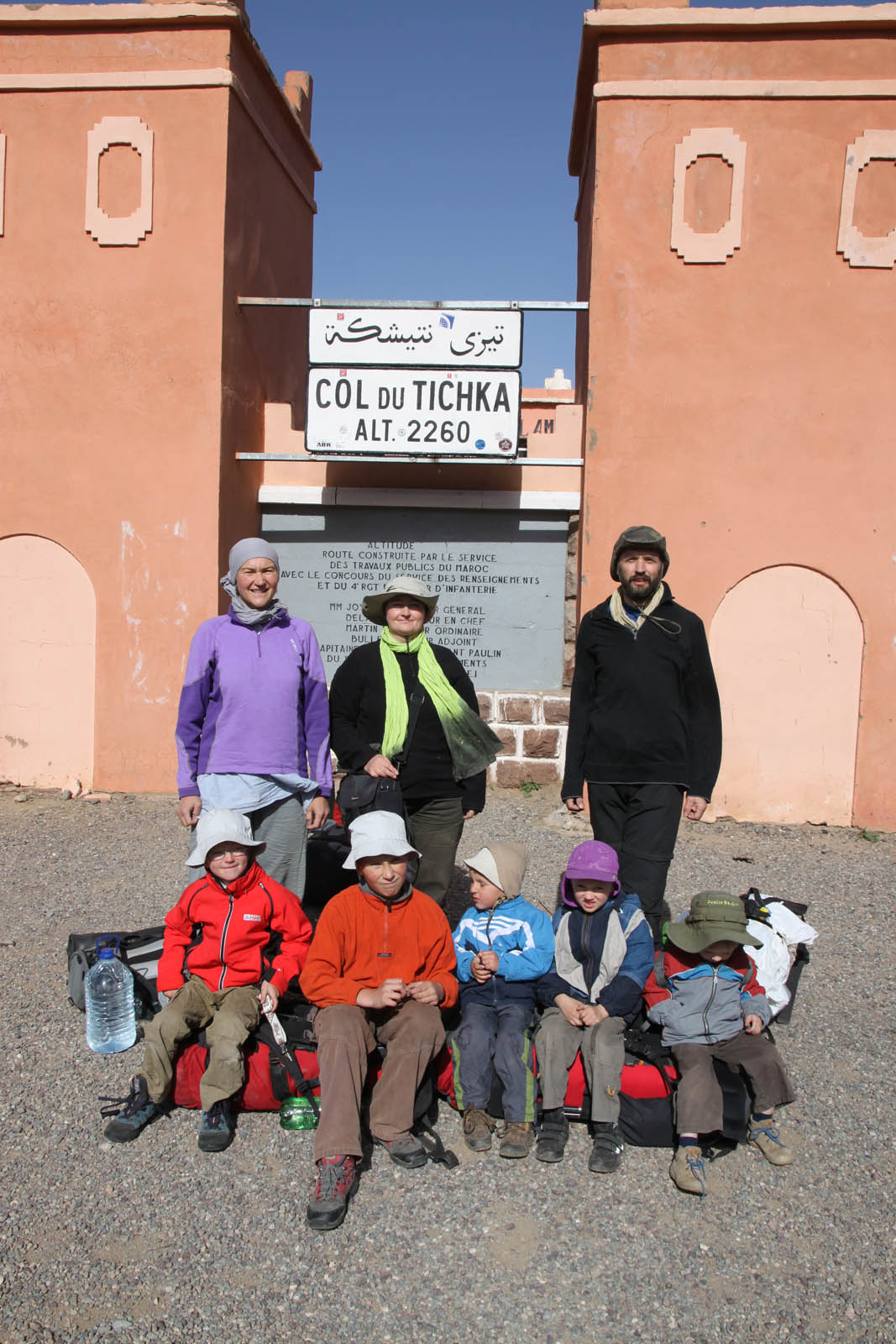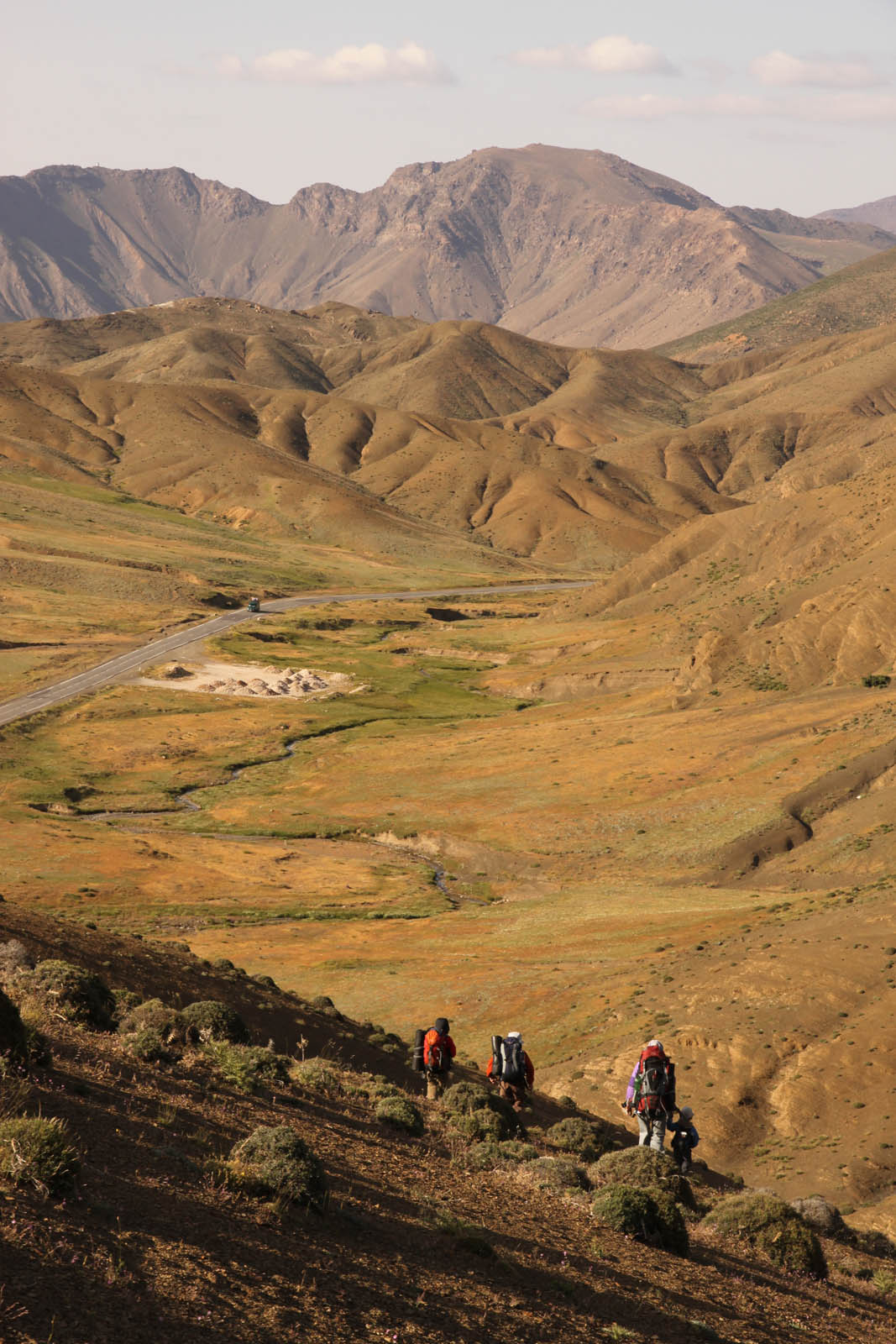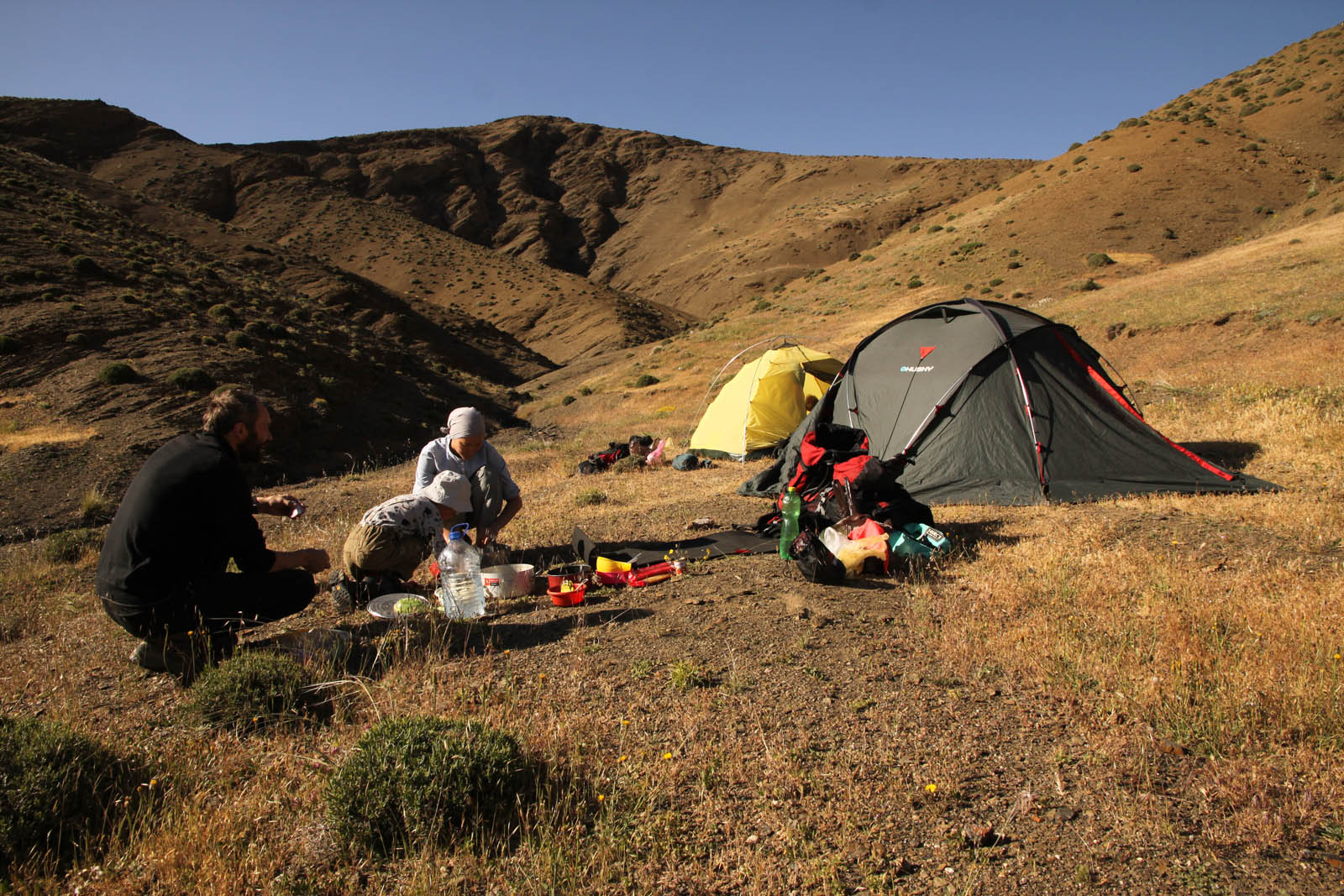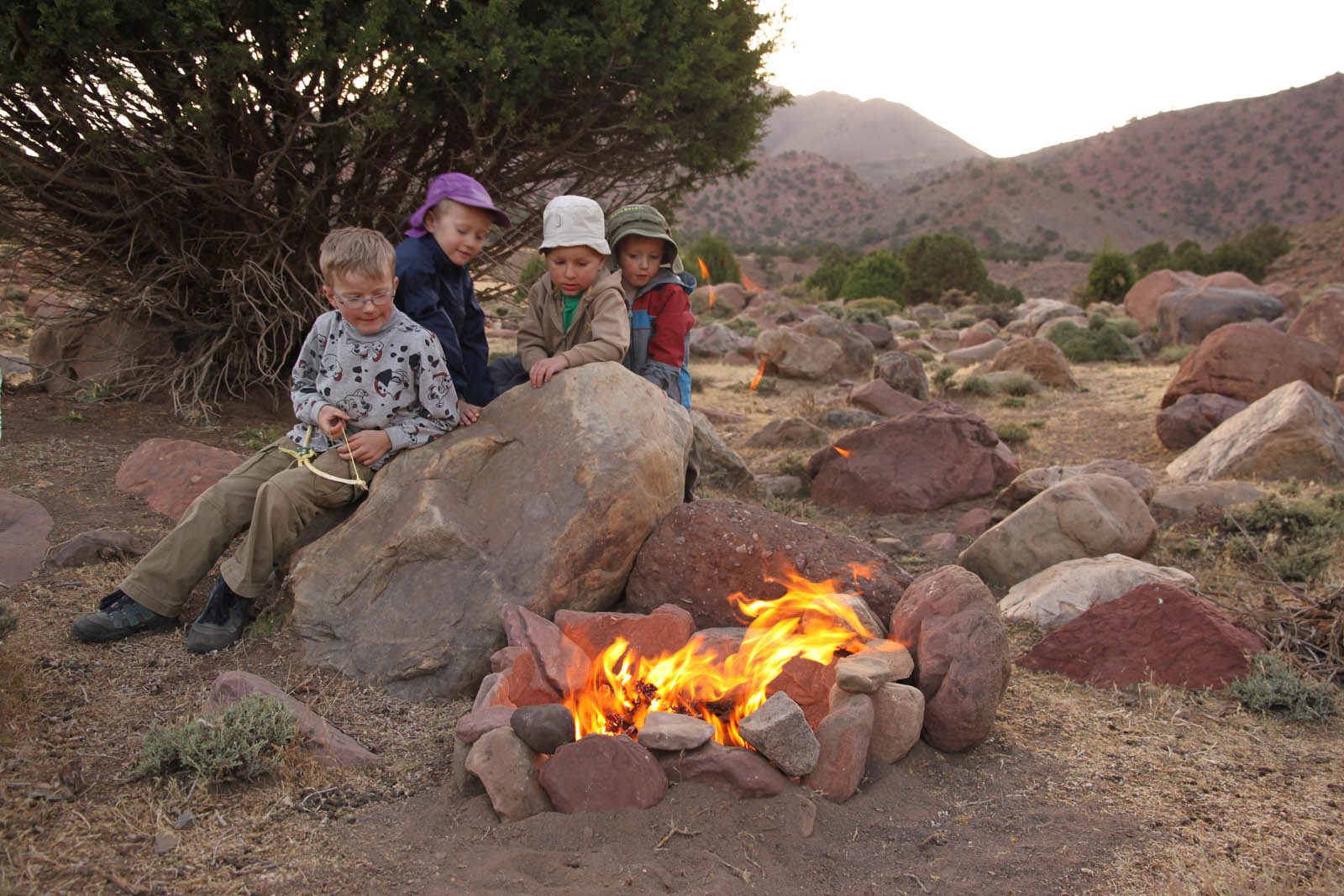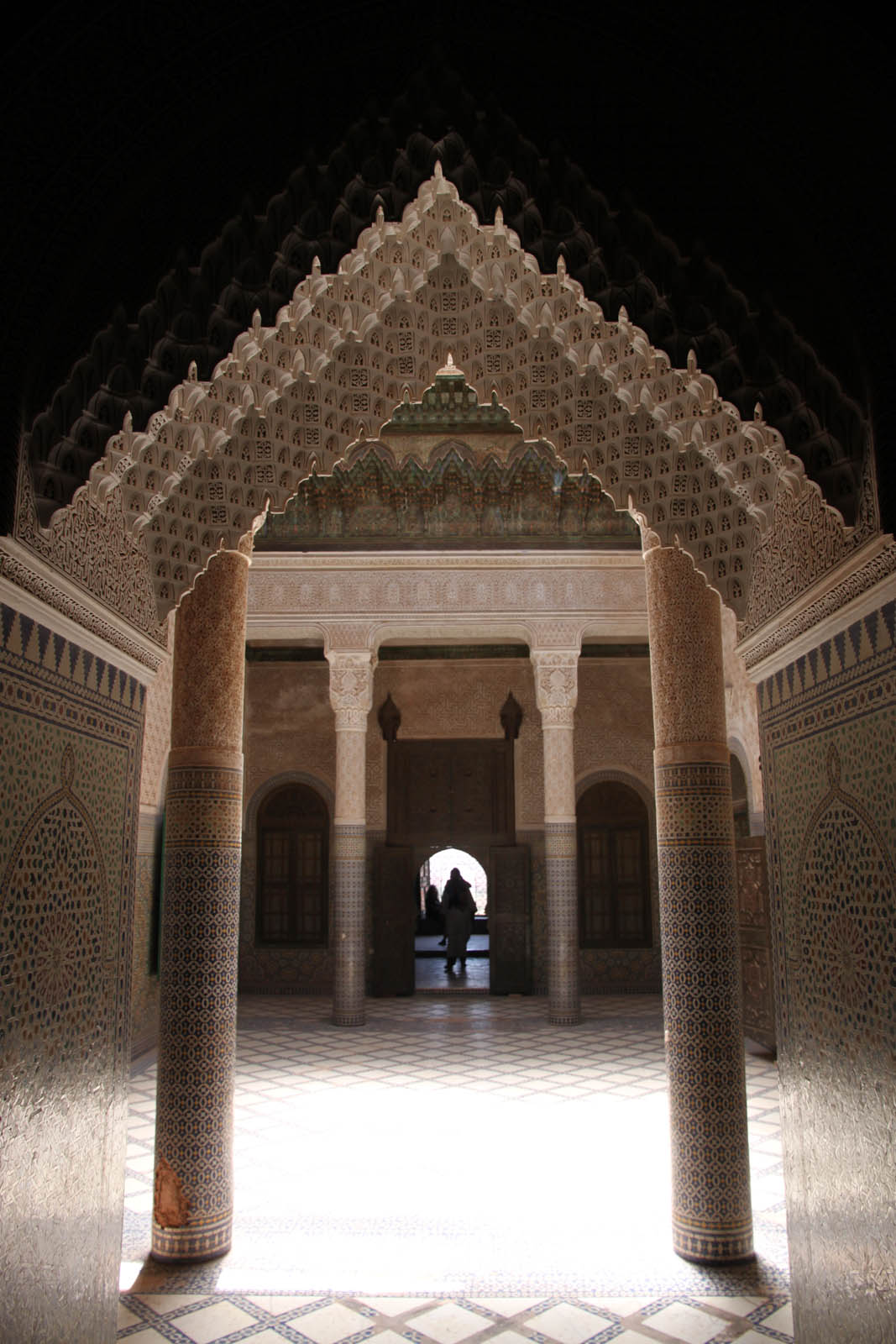For a moment, views open up and we get a glimpse of High Atlas, towering above the Marrakech plain. After three weeks in Morocco, we are tired of cities and crowds. The kids grumble at any notion of more monuments or bazaars. We are longing for the mountains.
The ridges are absolutely dry and without any civilization. How can we go trekking there with five children in tow? The youngest are just three years old and are hardly fit enough for a long trek. We are making plans over strong mint tea in a Marrakesh hotel. It is clear we want to follow a creek, preferably downhill. We would not be able to carry water even for a single day. And as we enjoy mountains the most on our own, without donkeys or tourist agents, the length of the trip is also limited. There are no shops, and we will need to carry all supplies ourselves. So we aim for four, or at maximum, five days.

The road to Tizi’n Tischka twists and winds its way up to the 2260 meters. (High Atlas, Morocco)
The bus to Tizi´n Tichka follows an incredibly narrow and twisting road. The locals on the bus claim this is the main highway heading south. We are the only Europeans on the bus, the rest are Moroccans, mostly men. The fare is charged per seat, so the few women travelling with a family have several kids on their lap each. For a part of the journey, I end up next to a local mum. Three of my kids on my lap, three more on hers, squeezed on a narrow bus bench, we try to communicate with help of my very limited Arabic and lots of gestures.
I breathe a sigh of relief as we leave the bus in the high pass at altitude of 2260 meters. In more than one corner of the twisted road I felt like vomiting, but the views from the pass are breathtaking. The ridges are absolutely barren, brown and grey, topped with a cobalt blue sky. A sudden feeling of freedom overwhelms me. A small path leads us to one of many pastures. Late into the night, we sit outside our tents, observing the myriads of stars above our heads, talking and enjoying absolute solitude and silence.
A few small coffee-houses in the pass open in the morning to sell drinks and fossils. The owner of one of the shops suggests we follow a small gorge: “Do not continue on the road. It is better to go down the valley here. If you keep to the dry riverbed, you will reach the next village in few hours.” Without his reassurance, we would have never taken the risk. The gorge is absolutely barren – a few thorny bushes on the arid slopes are the only vegetation. There is no path to follow. “And make noise! There are snakes!” he cries from the distance, as we disappear behind the horizon.
Finally! We do reach the village! After a difficult descent – in places sliding on our bums to get down the valley – the gorge widens and a small creek appears. Another utterly beautiful African night awaits us, and this time we make a fire to sit around. I lie on the camping mat and listen to the sounds of the bush. During the heat of the day, everything was still. Now it has cooled down, thousands of sounds and screeches fill the night.
Next day we finally arrive at the road. Despite there being barely any traffic, we manage to hitch a ride to Telouet. We squeeze into two vans carrying tourists into the desert. Although it is common to pay for the ride in Morocco, the drivers do not ask for any money.
The kasbah of Telouet was built by the Glaoui brothers, who at the beginning of last century controlled vast parts of High Atlas. The brothers were skilled politicians and fierce rulers. They built their castle from stones and sun-dried mud bricks. After one hundred years of wind, frost and – one would hope – some rain, the weather took its toll, and the better part of the castle lies in ruins. The main representative halls, however, survived and were restored, making the castle well worth a visit. The architectural style of kasbah is very traditional, with tiles on the floors and lower walls, stucco and beautifully carved wooden ceilings.
Later in the in the afternoon, we are sitting by a small stall on the main road, sipping strong coffee. Suddenly, a dust storm picks up. In no time, everything disappears in a yellow mist – us, our kids, kasbah, mountains and the coffee stall.

